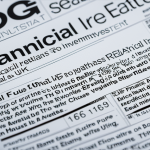Key Challenges Faced by UK Pet Owners
Understanding common pet ownership challenges UK residents face helps improve both pet wellbeing and owner satisfaction. One major difficulty is the rising costs of pet care. This includes not only food and supplies but steadily increasing veterinary bills, which strain many household budgets.
Navigating local pet legislation and restrictions adds complexity. Many UK regions enforce breed-specific laws or require pet licenses, which can be confusing and limit certain pet choices. These pet ownership difficulties require owners to stay informed to avoid unintentional violations.
In parallel : Why Are Therapy Pets Becoming More Popular in the UK?
Housing presents another typical challenge. The UK’s rental market often includes strict pet restrictions UK tenants must consider. Many landlords prohibit pets or require explicit permission, which can hinder pet ownership or lead to housing instability.
By recognizing these typical pet owner problems, owners can better prepare for the financial, legal, and logistical demands of responsible pet care in the UK. Awareness and planning are vital to managing these ongoing challenges efficiently.
Also to discover : How Can You Ensure Your Pet’s Well-being During Seasonal Changes in the UK?
Financial Commitments of Pet Ownership
Managing pet care costs UK is a significant concern for many owners. Veterinary bills often represent the largest expense, with treatments, vaccinations, and emergency care adding unpredictability to household budgets. These costs can escalate unexpectedly, challenging even the most prepared pet owners. Regular check-ups help detect health issues early, but their cumulative expense must be factored into ongoing spending.
Pet insurance UK offers a buffer against these costs, reimbursing veterinary expenses if policies are comprehensive. However, understanding policy limitations is vital; many exclude pre-existing conditions or certain breeds, meaning coverage might fall short during major health events. Choosing the right insurance requires careful comparison of plans, including premiums, excess fees, and claim procedures.
Beyond vets, food and supplies contribute to expenses. High-quality diets, grooming products, and accessories tailored to specific pet needs all increase monthly costs. The cumulative impact emphasizes the importance of budgeting and seeking cost-effective resources without sacrificing care quality. Addressing these pet ownership difficulties proactively helps ease financial strain and supports responsible pet wellbeing.
Understanding Legal and Housing Barriers
Navigating pet ownership laws UK is a significant hurdle for many owners. Local authorities enforce various regulations, including breed-specific legislation that restricts ownership of certain dogs. These laws aim to improve safety but can limit pet choices and require owners to obtain licenses or permits. Failure to comply may result in fines or even confiscation of pets.
Renting with pets adds another layer of complexity. Many tenants encounter pet restrictions UK landlords impose, which often prohibit animals or demand explicit consent. Such limitations force prospective pet owners to carefully search for pet-friendly accommodations or negotiate lease terms. This challenge is compounded by housing shortages and landlords’ cautious attitudes, impacting many renters’ ability to maintain pet ownership.
Together, these pet ownership difficulties highlight the importance of researching local laws and rental policies before acquiring a pet. Being informed helps prevent legal issues and housing instability, which are common pet owner problems in the UK.
Understanding and anticipating these legal and housing barriers can ease the path toward responsible and stable pet ownership.
Access to Veterinary Care and Health Services
Access to UK veterinary services varies widely between urban and rural areas, creating notable pet healthcare challenges. While city residents often find multiple veterinary clinics nearby, rural owners may face long travel distances for routine check-ups or emergency treatment. This gap can delay care, affecting pet health outcomes significantly.
Emergency vet services in the UK are lifesaving but come with high costs, which add to overall pet care costs UK. Emergency visits often exceed routine consultation fees and are less predictable, placing financial pressure on owners. Planning ahead by locating nearby clinics and understanding their emergency protocols can reduce stress during urgent situations.
Waiting times and appointment availability also contribute to challenges. Many vets require booking well in advance, which can conflict with sudden health needs. Telemedicine and out-of-hours veterinary hotlines are emerging solutions to improve access, although they may not substitute for physical exams.
Understanding the availability and costs associated with veterinary care helps owners anticipate and effectively manage these critical aspects of pet ownership in the UK.
Key Challenges Faced by UK Pet Owners
UK pet owners consistently encounter common pet ownership challenges UK wide, notably the rising costs of pet care. Beyond veterinary bills, expenses for quality food and essential supplies steadily increase, placing ongoing strain on household budgets. These financial burdens are among the most significant pet ownership difficulties, demanding careful budgeting and prioritisation.
Moreover, navigating the patchwork of local pet legislation adds complexity. Many owners face strict regulations, including breed-specific restrictions and mandatory licensing. These laws vary regionally, creating confusion and the risk of non-compliance, a frequent source of typical pet owner problems.
Housing issues compound these challenges further. UK rental markets often feature pet restrictions UK tenants must navigate, with landlords frequently forbidding pets or requiring explicit consent. This restrictiveness can delay or prevent pet ownership, complicating housing stability for renters with animals.
Together, these core difficulties underscore the multifaceted demands UK pet owners face daily. Awareness of financial, legal, and housing barriers equips owners to better manage typical pet owner problems with informed decisions and preparation.
Behavioural and Time Management Challenges
Common pet behavioral issues UK owners face include anxiety, destructive chewing, and excessive barking. These behaviors often stem from insufficient exercise, lack of stimulation, or poor training. Addressing these pet ownership difficulties requires patience and consistent effort. Establishing routines for training and positive reinforcement can markedly reduce problem behaviors over time.
The time commitment pets demand is another significant challenge. Pets need daily exercise, social interaction, and mental engagement to thrive. For example, dogs typically require walks twice daily and interactive play, while cats benefit from engaging toys and attention. Neglecting these needs can worsen behavioral problems, affecting pet wellbeing and owner satisfaction.
Training UK pets effectively also demands persistence and knowledge of breed-specific traits. Many UK owners encounter frustration when pets respond slowly or regress during training. Enrolling in local training classes or consulting professionals can provide tailored support, turning challenges into manageable tasks.
By recognising typical pet owner problems like behavioural issues and time constraints, owners can develop realistic schedules and adopt proven techniques. This proactive approach promotes harmonious pet relationships and reduces stress for both pets and owners alike.







